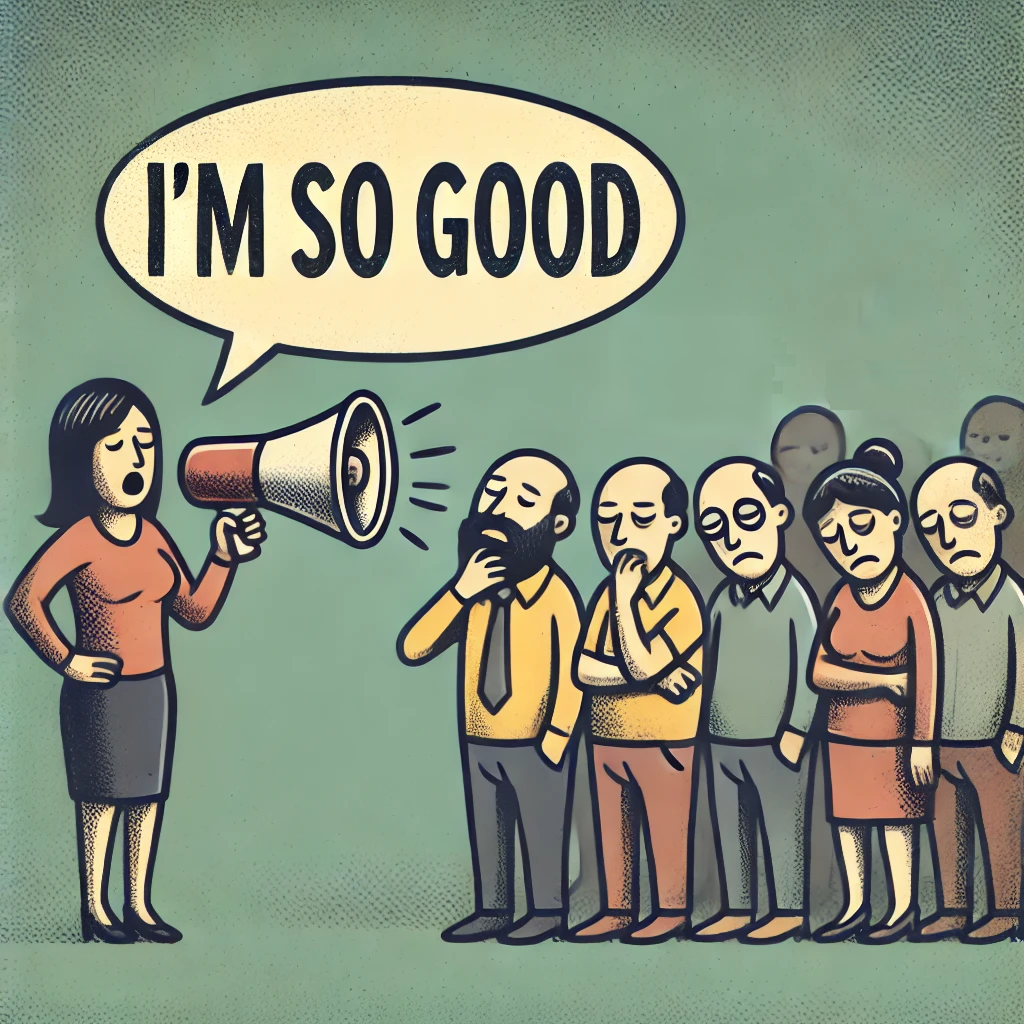LinkedIn, designed as a professional networking platform, has increasingly become a space where people boast about their achievements, success, and personal fulfillment. While these posts may generate likes and positive comments, they often serve a more complex psychological function that can backfire on both the poster and the audience. This article explores why the seemingly positive act of boasting on LinkedIn often has the opposite of the intended effect, rooted in psychological dynamics that alienate rather than inspire.
Why Do People Brag on LinkedIn?
Bragging, especially on social media, is often an attempt to gain validation and boost self-esteem. For many, posting about professional success or personal achievements acts as a way to reassure themselves and others of their value. However, this type of self-promotion on platforms like LinkedIn, where career-related achievements are frequently highlighted, often communicates unintended messages (Whitbourne, 2015). While the poster may be trying to inspire or impress, they may inadvertently come across as self-serving or even narcissistic, leading to negative perceptions among their audience (Dholakia, 2023).
The Reverse Effect of Bragging: Alienating Your Audience
One of the main psychological consequences of frequent boasting is that it creates a sense of disconnection between the person posting and their audience. Research shows that bragging, whether direct or subtle, tends to trigger negative emotions in others, such as envy or irritation, rather than admiration (Polard, 2016). This is especially true when the audience perceives the boasting as unnecessary or self-indulgent. Rather than inspiring others, these posts often highlight the gap between the poster’s perceived success and the everyday struggles of their viewers (Dholakia, 2023).
The phenomenon of “humblebragging,” where people attempt to disguise their boastfulness with self-deprecating language, has been shown to be particularly ineffective. Studies suggest that humblebragging can actually evoke stronger negative reactions than straightforward bragging because it is perceived as inauthentic (Frontiers, 2023). When people boast on LinkedIn about their fulfillment or spiritual growth, their audience may feel distanced and even inferior, which ultimately undermines the purpose of the post (Small, 2015).
The Psychological Toll of Comparison
Social media, including LinkedIn, creates an environment ripe for social comparison. Constant exposure to posts celebrating others’ achievements can lead to negative emotional responses, such as envy or feelings of inadequacy. The act of boasting, particularly in a professional context, can exacerbate this effect, making others feel they are not achieving enough in their careers or personal lives (BMC Psychology, 2023). This is especially problematic when the achievements being boasted about seem unattainable or exaggerated.
Interestingly, even the boasters themselves may not reap the psychological rewards they seek. Research suggests that boasting often stems from insecurity rather than genuine pride. People may use platforms like LinkedIn to compensate for feelings of inadequacy or to convince themselves of their own success (Counselling Connection, 2019). However, this often leads to a cycle where they require constant external validation to maintain their self-esteem, which can become exhausting and counterproductive.
The False Sense of Helping
One of the more subtle aspects of LinkedIn boasting is the belief that by sharing success stories, individuals are “helping” or “inspiring” others. While sharing professional advice or insights can indeed be helpful, posts centered on personal achievements or happiness often serve only to highlight the poster’s successes without offering tangible value to others (Dholakia, 2023). In many cases, these types of posts do little to benefit the audience and instead contribute to a culture of one-upmanship and performative success.
Conclusion: Shift Toward Authenticity
The key takeaway for LinkedIn users is the importance of authenticity. While it is natural to want to share personal and professional milestones, boasting or humblebragging is often counterproductive, leading to feelings of disconnection, envy, and even frustration among your network. Instead, focusing on meaningful, value-driven content that genuinely seeks to help or inform others can foster stronger, more positive connections.
If the goal is to inspire or support, users should prioritize posts that offer actionable advice, share lessons learned, or provide encouragement to others facing similar challenges. This shift away from self-promotion and toward community-building is more likely to create lasting, positive engagement on LinkedIn.
References
Small, D. (2015). To brag or not: When it pays, when it backfires. Wharton Knowledge. Retrieved from https://knowledge.wharton.upenn.edu
BMC Psychology. (2023). The impact of social media on mental health. Retrieved from https://bmcpsychology.biomedcentral.com
Counselling Connection. (2019). The psychology of bragging. Retrieved from https://www.counsellingconnection.com
Dholakia, U. (2023). Why people should stop bragging on social media. Psychology Today. Retrieved from https://www.psychologytoday.com
Frontiers in Psychology. (2023). The reverse effect of humblebragging on social media. Retrieved from https://www.frontiersin.org
